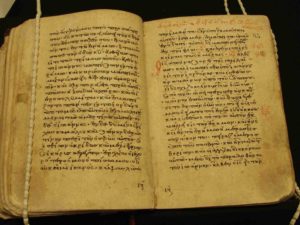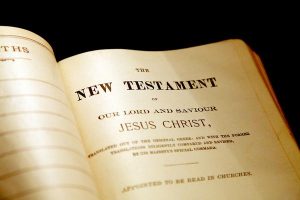Evidence of Early New Testament Canon by Circa 100 CE
Although it is popular to do so, we should not measure the existence of the New Testament (NT) canon (authoritative, or inspired, books) just by the existence of lists, which came into being somewhat later than the NT canon’s coming into existence. When we examine the way the NT books were viewed and used in the very early days of Christianity, we can determine the de facto existence of a functioning canon by about 100 CE.

The views expressed here are admittedly a little different than the traditional, or orthodox, view of how the New Testament canon, in particular, and the Bible as a whole, came into acceptance. The views presented here actually stand in stark contrast to modern-day populist scholars, like the agnostic Bart Ehrman.

